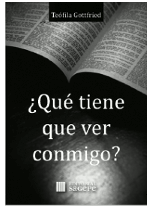Truth really can be stranger than fiction.
First Page - Now launched! All the stories are true, or based on real events. Unlimited reading for $4.99 / month. No downloads. Read on your phone, tablet or computer.
La verdad puede ser más extraña que la ficción.
First Page - ¡Ya está en marcha! Todas las historias son verídicas, o están basadas en hechos reales. Lectura ilimitada por $4.99 / mes. No hay que descargar nada. Lea en su teléfono, tableta u ordenador.
Manna Minutes Podcast: Eye-opening Bible study in less than five minutes! Access all episodes here.
Manna Minutes en español:
Estudio bíblico que nos hace abrir los ojos en menos de cinco minutos! Acceda a todos los episodios aquí.
Manna Minutes Podcast auf Deutsch:
Augenöffnendes Bibelstudium in weniger als fünf Minuten! Alle Episoden finden Sie hier.
Was There A Curse On Helen's Romantic Life?
The Third Man by Angela Sheffield is based on a true story. Read chapter one now!
View Content By Specific Category
¿Qué tiene que ver conmigo? por Teófila Gottfried
Lo que leemos en la Biblia tiene que ver con todos los seres humanos, sean cristianos o judíos, ateos o agnósticos, budistas, musulmanes o adherentes a alguna de las filosofías o nuevas religiones que surgen en el mundo. ¿Por qué? Ver mayor información sobre este interesante libro.
Scripture of The Day - St. John 14:6
Jesus saith unto him, I am the way, the truth, and the life: no man cometh unto the Father, but by me.
Escritura del día - San Juan 14,6
Jesús le dijo: Yo soy el camino, y la verdad, y la vida; nadie viene al Padre, sino por mí.
Bibelstelle des Tages - Johannes 14,6
Jesus spricht zu ihm: Ich bin der Weg und die Wahrheit und das Leben; niemand kommt zum Vater, denn durch mich!
Parable of Wheat and Tares Part - II

The study of the parable of wheat and tares begins with: Parable of Wheat and Tares - Part I
Chosen Vessels of God Among the Tares
There are two very important truths that are learned in answering the questions of why the angels can't tell the difference between the wheat and the tares and why God doesn't just destroy the tares so they don't trouble the wheat. It's important to understand some very basics about tares and wheat to fully grasp the richness of the parable of wheat and tares. Tares are a noxious plant that belong to the family of grasses and they grow among wheat in the land of Palestine. So great is the resemblance of tares to wheat that it's extremely difficult to tell the two plants apart while they are growing.
Certainly a look at the genes or the very make-up of the plants would reveal what is tares and what is wheat; but that requires a much higher understanding of the two plants. The common man who can only view them with the naked eye can't see that deeply into the differences of the essence of each plant. Likewise, the holy angels of God, with all of their wisdom, cannot see the heart of man like the Lord. This is why they can't distinguish the plants in the parable of wheat and tares.
Saul of Tarsus, whose name was changed to Paul after his conversion to Christ, is a prime example of "wheat" that behaved like "tares." Ananias, a servant of Christ to whom Saul was sent shortly after his conversion was understandably leary when the Lord told him in a vision to go to Saul. We read, "And the Lord said unto him, Arise, and go into the street which is called Straight, and inquire in the house of Judas for one called Saul, of Tarsus: for, behold, he prayeth, and hath seen in a vision a man named Ananias coming in, and putting his hand o him, that he might receive his sight. Then Ananias answered, Lord, I have heard by many of this man, how much evil he hath done to thy saints at Jerusalem: and here he hath authority from the chief priests to bind all that call on thy name. But the Lord said unto him, Go thy way, for he is a chosen vessel unto me, to bear my name before the Gentiles and kings and the children of Israel. For I will shew him how great things he must suffer for my name's sake" (Acts 9:11-15).
Paul tells in the scriptures of his relentless persecution of the Christian church, even consenting to the torture and murder of the saints. If the tares had been gathered up to be burned during the times that Paul was Saul of Tarsus, he surely would have been separated from the wheat. However, God said he was a chosen vessel. It might be said that he was wheat that would definitely have passed for tares. To uproot him and burn him would have interfered with God's plan and specific timing for everything. Of course the Lord could simply have informed the angels of which "tares" not to uproot. However, he also could inform the angels of the events of the end of the present world, but he doesn't (Mark 13:30-32).
When Saul of Tarsus persecuted the church, it was a situation of the wheat suffering at the hands of a chosen vessel who appeared to be among the tares. Later, much more good seed would be planted by the Son of man through his converted servant and chosen vessel, the apostle Paul. It isn't logical to expect the Lord to uproot his chosen vessels while they are behaving as tares. Sadly, the wheat endures suffering at the hands of those "tares." The faith in God that the wheat has is perfected; and they are earning a crown of righteousness while God's chosen vessels among the "tares" are moving towards becoming wheat. This can seem so very unfair at times because of the suffering involved.
However, Part of the whole work of believers having faith in God is that they trust Him even when his ways, purpose, and timing just do not seem fair or to make sense to the logic of the natural mind. This is one of the truths of which Christian believers are reminded in the parable of wheat and tares.
Tares that Appear to Be Wheat
Some readers of the Bible have suggested that not only can "tares" who are destined to become wheat be uprooted and burned by mistake, but that tares posing as wheat might escape being uprooted and end up slipping into the kingdom of God. Their reasoning is based on scriptures such as 2 Corinthians 11:13-14 which says, "For such are false apostles, deceitful workers, transforming themselves into the apostles of Christ. And no marvel; for Satan himself is transformed into an angel of light. Therefore it is no great thing if his ministers also be transformed as the ministers of righteousness...."
This explanation surrounding the parable of wheat and tares certainly makes sense on the surface, considering the many scriptures that speak of the children of the enemy disguising themselves as children of God. However, there are scriptures which cast doubt that the angels could be deceived regarding who is a servant of Christ and who isn't. This is not the same thing as expecting them to know who among the "tares" will be saved and who won't because that would be expecting them to be able to see into a man's heart and to see into the future.
God's word teaches us that man is made a little lower than the angels (Hebrews 2:6-7), yet the Lord gave man a way to be able to distinguish his true children from the children of the enemy. Man is instructed with the words, "...Believe not every spirit, but try the spirits whether they are of God, because many false prophets are gone out into the world. Hereby know ye the Spirit of God. Every spirit that confesseth that Jesus Christ is come in the flesh is of God; and every spirit that confesseth not that Jesus Christ is come in the flesh is not of God..." (1 John 4:1-3).
In the scripture of Matthew 24:23-27, Jesus warns his servants about false Christs and false prophets who will work great signs and wonders that appear to be performed in his name and by his power. He gives his followers very specific instructions to follow so they are not deceived. There are numerous scriptures that deal with distinguishing the children of the kingdom of heaven from the children of the kingdom of darkness. The Bible also gives the accounts of God's intervention to protect his children from being deceived by ministers of the enemy. If man, who is lower than the angels, is permitted such wisdom, it's not logical to think that a holy angel of God would not be wise enough to detect the children of the enemy even if they are in the most crafty disguise. The conclusion: tares posing as wheat would not be able to slip into the kingdom of heaven. "Tares" destined to become wheat, however, definitely would be in danger of being uprooted prematurely.
 Based on true events, The Third Man by Angela Sheffield, brings the Bible up close and personal as the characters face real issues of life: Betrayal, deceit, romance, bitterness, anger against God, hopelessness, will power, perplexity, triumph, unforgiveness, mental illness, and the "Alcohol made me do it" excuse. Read chapter one FREE now.
Based on true events, The Third Man by Angela Sheffield, brings the Bible up close and personal as the characters face real issues of life: Betrayal, deceit, romance, bitterness, anger against God, hopelessness, will power, perplexity, triumph, unforgiveness, mental illness, and the "Alcohol made me do it" excuse. Read chapter one FREE now.
Copyright notice: This website and its content is copyright of © Heavenly Manna (HeavenlyManna.net) 2002-2016.
Comments/Comentarios:
Send Comments or a Private Message about One of Our Services / Envíe Comentarios o un Mensaje Privado acerca de nuestros servicios
Once comments reach 10, they close. IF YOU USE PROFANITY, WE WILL REJECT YOUR COMMENT AUTOMATICALLY.
We're a small team, please be patient as we review comments.
©2003 - 2013 Heavenly Manna Ministries
Images: courtesy of Free Digital Photos, openstockphotography.org, FreeFoto.com, Wikimedia Commons. Multiple crosses image - Wikimedia Commons - C.G.P Grey - Animation by Heavenly Manna










